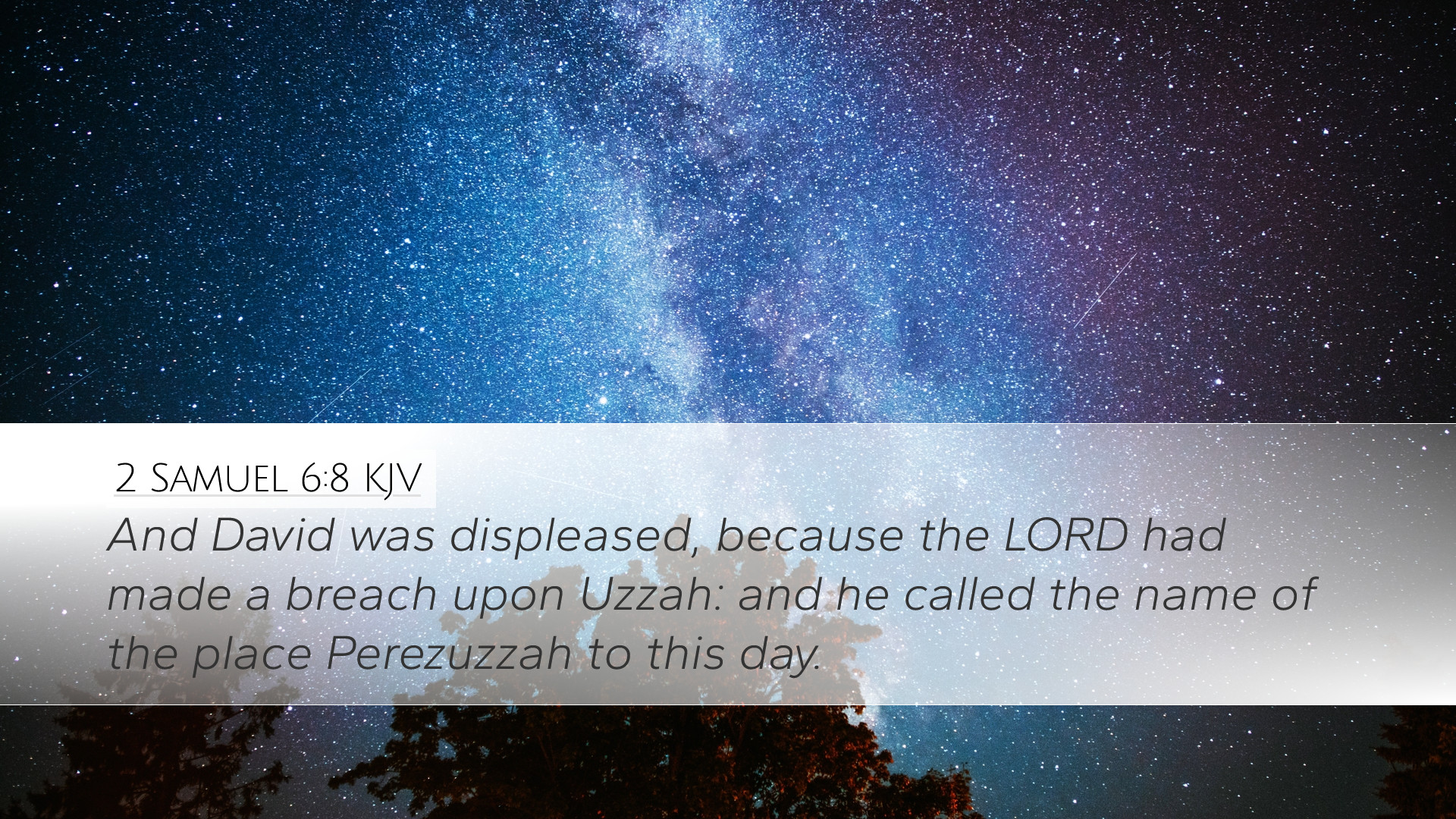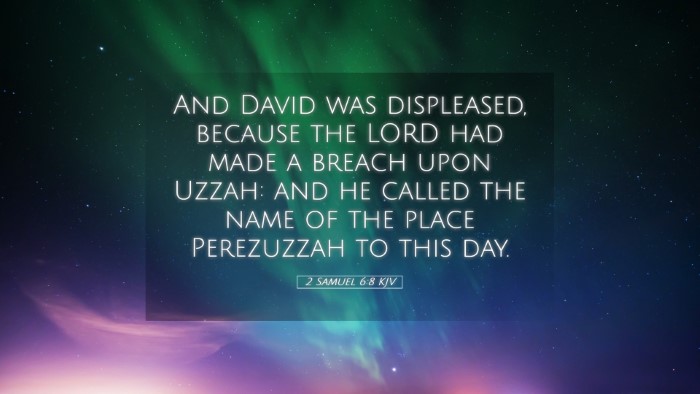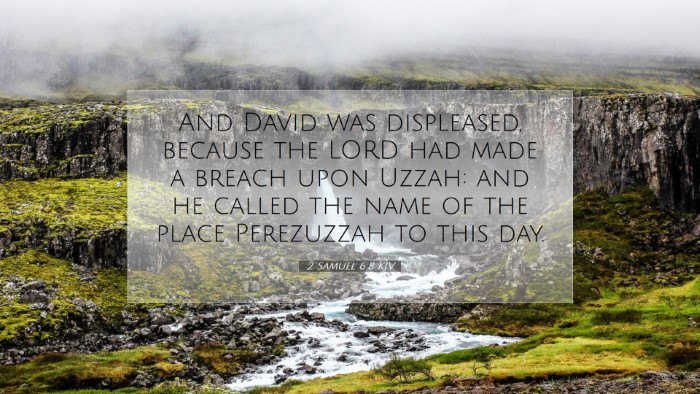Commentary on 2 Samuel 6:8
Verse Context: 2 Samuel 6:8 states, "And David was angry because the LORD had made a breach upon Uzzah: and he called the name of the place Perez-uzzah to this day." This verse occurs during the narrative of David bringing the Ark of the Covenant to Jerusalem, a significant event reflecting Israel's divine favor and national identity.
Insights from Public Domain Commentaries
Matthew Henry's Commentary
Context of the Ark’s Journey: Matthew Henry emphasizes that the transport of the Ark by Uzzah and Ahio under David’s auspices demonstrates a sincere desire to honor God. However, the method was flawed, as the Ark must be carried by the Levites, not on a cart.
Uzzah’s Sin: The death of Uzzah was a stern reminder from God of His holiness and the sacredness of the Ark. Uzzah’s reaching out to steady the Ark was an act of human reasoning disregarding divine order, illustrating the importance of obeying God's commands precisely.
David’s Reaction: Henry notes that David’s anger illustrates human emotions in response to divine judgment. Rather than understanding the nature of God’s holiness, David momentarily reacts with frustration. This is critical for leaders to contemplate – a swift response to God’s workings that may reflect misunderstanding or incomplete knowledge.
Albert Barnes' Commentary
Theological Significance: Barnes highlights the theological implications of Uzzah's death. The incident illustrates the absolute nature of God’s laws concerning worship and reverence. God's fierce reaction to Uzzah’s seemingly harmless act reflects the severity of divine justice in matters sacred.
Grieving the Loss: The place named Perez-uzzah signifies the breach and the serious consequences of transgressing divine statutes. Barnes asserts this serves as a powerful admonition to ensure that worship is grounded in scripture and the proper observance of God's regulations.
David's Learning Experience: Barnes notes that David's immediate fear resulted in an increased reverence for God. This period of contemplation led him to understand that God must be approached with holiness and fear. David’s later actions reveal a heart that seeks to honor God correctly.
Adam Clarke's Commentary
Historical Background: Clarke provides historical insights relating to the Ark and its significance to Israel. He discusses the transition of worship practices and the importance of the Ark as the visible symbol of God’s presence among the people—a point reiterating the sacredness with which the Ark must be treated.
Lessons on Divine Order: Clarke emphasizes the lessons drawn from this narrative regarding divine order. His analysis points to how God’s holiness cannot be compromised by human actions. Uzzah’s intentions, while innocuous in human terms, disobeyed God’s command, a reminder that intention must align with divine directives.
David’s Leadership: Clarke notes that after this shocking incident, David exhibited humility and reflection. He sought to understand God's will rather than proceeding with his plans. This showcases an essential aspect of leadership: being attuned to God’s voice even amidst unforeseen events.
Theological Themes and Lessons
- Holiness of God: The overarching theme is the holiness of God. The incident serves as a reminder that God’s stature is unapproachable without adherence to His statutes.
- Importance of Obedience: The death of Uzzah underscores that God desires obedience over good intentions. Study of God’s commands is crucial for any act of worship.
- Divine Judgement: The Lord's immediate judgment on Uzzah reflects His intolerance for sin. This underscores the seriousness of sin and the need for reverence in all interactions with God.
- Leadership and Responsibility: David’s experience encourages leaders to approach God with due diligence and caution, recognizing their responsibility in guiding the people according to God’s Word.
- God’s Sovereignty: This account emphasizes that God operates not according to human understanding, but divine wisdom. His ways are higher than our ways, driving home the importance of trust in His sovereign will.
Conclusion
In-depth reflection upon 2 Samuel 6:8 illuminates profound truths about divine holiness and the gravity of worship practices. By drawing insights from various commentaries, we can grasp the need for obedience to God’s will, the understanding of leadership responsibilities, and the perpetual need to honor the sacred mysteries of faith with humility and respect.


